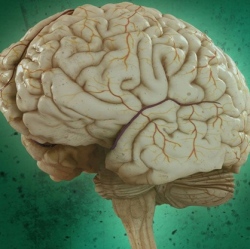
By watching individual neurons at work, a group of psychologists at the University of Wisconsin-Madison has revealed just how stress can addle the mind, as well as how neurons in the brain’s prefrontal cortex help “remember” information in the first place.
Stress has long been pegged as the enemy of attention, disrupting focus and doing substantial damage to working memory — the short-term juggling of information that allows us to do all the little things that make us productive.
Working memory is both short-term (on the order of seconds) and flexible, allowing the brain to hold a large amount of information close at hand to perform complex tasks. Without it, you would have forgotten the first half of this sentence while reading the second half.
The prefrontal cortex is vital to working memory. ”In many respects, you’d look pretty normal without a prefrontal cortex,” said Craig Berridge, UW-Madison psychology professor. “You don’t need that part of the brain to hear or talk, to keep long-term memories, or to remember what you did as a child or what you read in the newspaper three days ago.”
